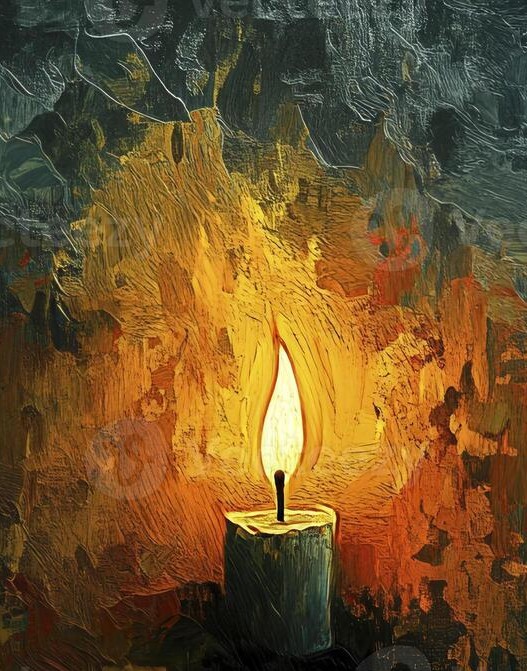Introduction
There is a profound beauty in light, but also a hidden truth in shadow. The phrase “The brighter the flame, the darker the shadow it casts” is more than poetic metaphor—it’s a reflection of the dual nature of existence, identity, and the human soul.
In the pursuit of greatness, clarity, or truth, many of us forget to account for the shadows our light creates. Yet, the deeper we understand our light, the more honestly we must face our darkness. This is the heart of self-realization.
1. Light as Awareness
Flames represent consciousness, ambition, enlightenment. We strive to burn brightly—through success, knowledge, virtue, or even love. But in doing so, we inevitably cast shadows. These are the blind spots of our awareness, the suppressed emotions, the truths we avoid.
The more brightly we shine—morally, spiritually, intellectually—the more noticeable and sometimes unavoidable our inner contradictions become.
“He who fights with monsters should be careful lest he thereby become a monster.” — Nietzsche
2. The Ego’s Bright Flame
The ego, too, is a flame. It gives us identity, motivation, and structure. But unchecked, it blinds us to the shadow it projects. The more we define ourselves by perfection or purity, the more we hide our imperfections, and the more intense our inner conflict becomes.
In seeking to become someone better, we may unintentionally create a version of ourselves that is afraid to admit weakness, fear, or doubt. The shadow grows in silence.
3. Shadow as Teacher
Carl Jung, a foundational figure in depth psychology, said: “One does not become enlightened by imagining figures of light, but by making the darkness conscious.”
True self-realization isn’t about escaping the shadow. It’s about integrating it.
The shadow holds the parts of us we’ve denied: anger, shame, envy, fear. It also hides our suppressed strength, creativity, and potential. The brighter the flame, the more urgently we must face this hidden self—otherwise, the shadow may act out in ways we don’t control or understand.
4. Real-Life Reflections
Carl Jung said, “Until you make the unconscious conscious, it will direct your life and you will call it fate.”
The shadow is not evil. It is simply unseen. It may contain suppressed anger, fear, guilt—or it may hide untapped potential, creativity, and authenticity. In truth, the shadow holds the keys to our wholeness.
Facing the shadow is not a punishment; it’s a gift. When we dare to look into our own darkness, we find the parts of ourselves we left behind in order to “be good.”
“Be good to life and life will be good to you.” – Mi TaSa
This includes being good to your whole life—not just the parts that shine.
5. Balancing Light and Shadow
To grow means to expand both awareness and compassion—for self and others. Self-realization is not about eliminating the shadow, but recognizing it as a necessary part of the whole.
Ask yourself:
-
What part of myself do I fear revealing?
-
What emotions do I suppress in the name of being “good”?
-
Where is my shadow helping me grow—if I let it speak?
Conclusion
The flame and the shadow are one.
Self-realization demands the courage to stand in our own light and to meet the darkness it reveals. Only then can we live with integrity, humility, and depth.
Let your flame shine—but know that your shadow is not your enemy. It is your mirror, your map, and ultimately—your teacher.

Leave a Reply